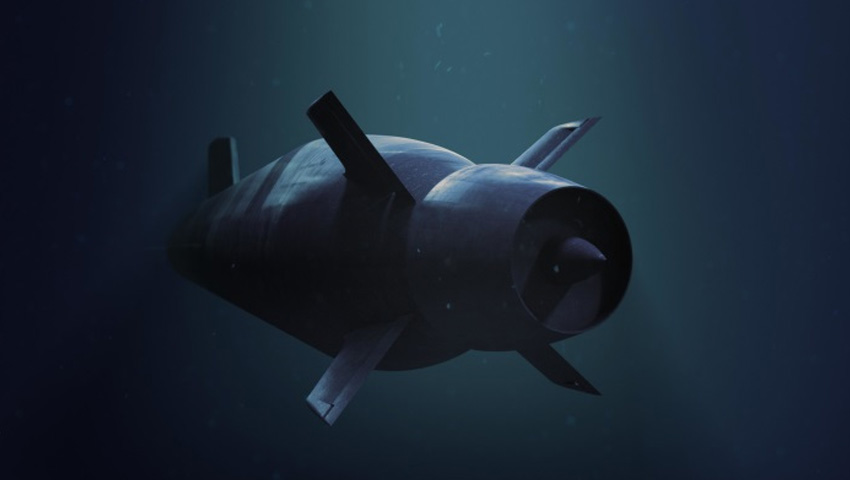A former Navy submarines commander explores whether the Commonwealth should have given more credence to a nuclear option for the Future Submarines program.
To continue reading the rest of this article, please log in.
Create free account to get unlimited news articles and more!
In a piece published by the Australian Strategic Policy Institute (ASPI), Denis Mole, a former submarines commander of the Royal Australian Navy, questions the Commonwealth government’s decision to rule out a nuclear option for the Future Submarines program.
Mole raises the issue in response to comments from former defence minister Christopher Pyne, who described the nuclear argument as “nonsensical”.
“Almost all of these arguments are driven by people who either know nothing at all about submarines and defence or have outdated information that is no longer relevant,” Pyne claims.
Mole rejects Pyne’s assertion, noting support for a nuclear option among Australia’s “current and recent submarine commanding officers”.
“The 2016 Defence White Paper called for Australia’s future submarines to be ‘regionally superior’. As a former commander of the submarine force, I don’t know any submarine commanding officer over the past 30 years who has any doubt that, overall, nuclear-powered submarines are superior to diesel submarines of similar vintage,” Mole writes.
The Navy veteran acknowledges that Australia’s forthcoming Naval Group-built Attack Class submarines would “probably be superior to most diesel submarines” in the region, but warns that they would likely be outmatched by China’s nuclear-powered submarines entering service in the 2040s.
“China’s navy is numerically larger than the US Indo-Pacific fleet now and is forecast to be more powerful than the American fleet by 2035,” he writes.
“Australia’s 12th Attack Class submarine won’t enter service until around 2054 and will be in service until about 2080.”
Mole also responds to Pyne’s suggestion that a nuclear submarine program would not be viable in the absence of a local nuclear industry.
“Pyne might have the cart before the horse. The Americans had their first nuclear-powered submarine in service before their first nuclear power station,” he writes.
“The nuclear power station program in the US had been languishing until Captain, later Admiral, [Hyman] G. Rickover was appointed to head the nuclear reactor development for both naval and civil applications.
“In the early years, it was trained nuclear submariners leaving navy service and going into the commercial power sector that allowed that industry to grow rapidly.”
Mole adds: “The claim that Australia can’t have nuclear-powered submarines because it doesn’t have a nuclear industry has never been tested. An Australian ability to manufacture and reprocess nuclear fuel wouldn’t be essential in order to own and operate nuclear-powered submarines.”
The former Navy commander points out that modern American and British submarines are built with nuclear fuel capable of lasting over the life of the vessel, and notes that Japan operates 33 nuclear reactors in power stations without manufacturing or reprocessing nuclear fuel.
“This is also true of many countries in Europe and the Middle East that have nuclear power. Australia buys advanced combat aircraft and weapons that are manufactured overseas, so why not nuclear reactors and the whole-of-life fuel they require?” Mole asks.
“Nuclear-powered submarines could be built in Australia with imported reactors.”
The veteran questions the absence of a “larger and more diverse” nuclear industry in Australia, given that 17 of the world’s largest economies utilise nuclear power.
“Australia, Italy and Saudi Arabia are the three exceptions. Italy imports 16 per cent of its electricity from adjacent countries, more than half from France where it is produced from nuclear power. Saudi Arabia is acquiring nuclear power. And, as various countries commit to achieving net-zero carbon emissions by 2050, it’s noteworthy that no major economy intends doing so without nuclear power in the mix,” he notes.
Mole also observes that when faced with the choice between diesel or nuclear-powered submarines, the US, the UK and France all adopted the nuclear option, because “nuclear power is the more effective and superior technology”.
Mole laments the Commonwealth government’s dismissal of a nuclear option following the decision to replace the Collins Class fleet in 2009.
“The defence minister at the time, Labor’s Joel Fitzgibbon, directed the department that, in developing options, it was not to bring forward any nuclear proposal,” he notes.
“Three years later, when he was no longer defence minister, Fitzgibbon admitted it was a mistake ruling out a nuclear option; however, neither of his successors altered the ‘no nuclear’ guidance to the department.
“Consequently, when the Coalition government came to power in 2013, only conventional options had been developed.”
Despite conceding that the Attack Class program would need to proceed to “avoid a capability gap”, but stresses that the suitability of conventionally-powered submarines “needs to be challenged”.
Mole calls on the government to consider options to acquire nuclear-powered submarines for the additional six boats, adding that replacements for the six Attack Class submarines should be pursued “immediately”.
Get involved with the discussion and let us know your thoughts on Australia's future role and position in the Indo-Pacific region and what you would like to see from Australia's political leaders in terms of partisan and bipartisan agenda setting in the comments section below, or get in touch with
Charbel Kadib
News Editor – Defence and Security, Momentum Media
Prior to joining the defence and aerospace team in 2020, Charbel was news editor of The Adviser and Mortgage Business, where he covered developments in the banking and financial services sector for three years. Charbel has a keen interest in geopolitics and international relations, graduating from the University of Notre Dame with a double major in politics and journalism. Charbel has also completed internships with The Australian Department of Communications and the Arts and public relations agency Fifty Acres.

 Login
Login








